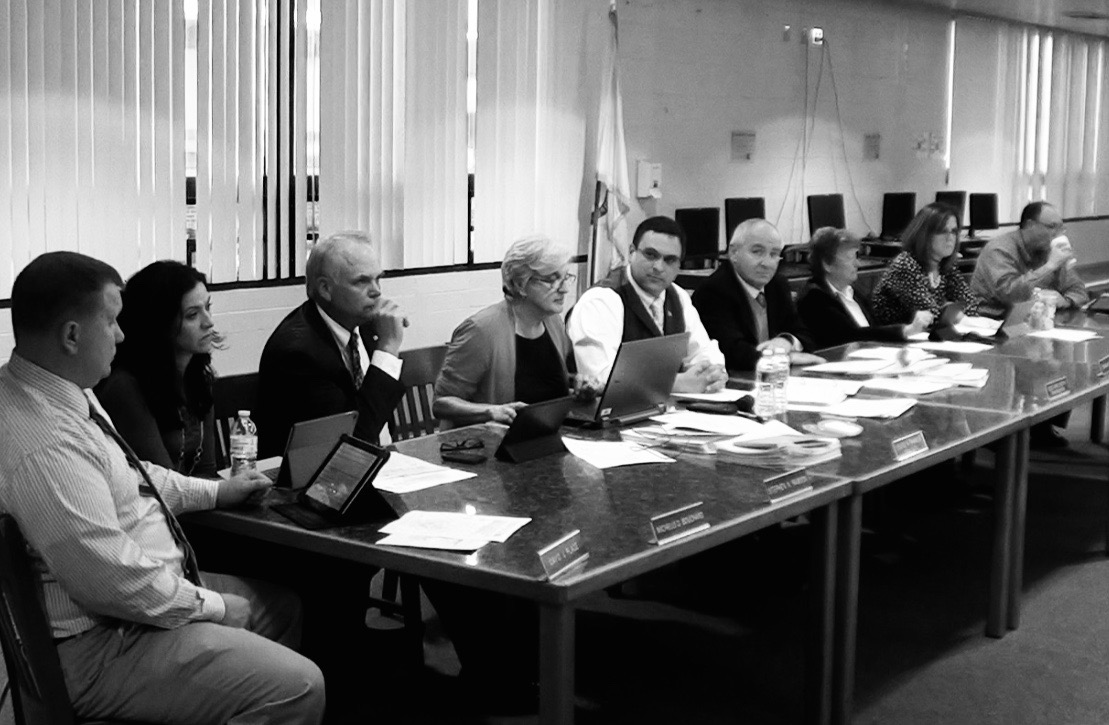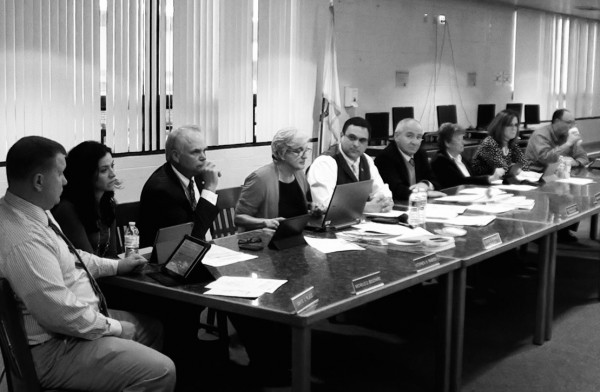This Wednesday, September 21 at 6pm, the Energy Facility Siting Board will conduct its next public hearing about Invenergy’s proposed fossil-fuel-fired power plant in Burrillville. The hearing will be held in the Toll Gate High School Auditorium, 575 Centerville Road, Warwick.
The last couple of weeks produced a flurry of advisory opinions on Invenergy’s power plant proposal. The list is here in the Public Utility Commission docket. I should have read all of these documents, but I have not and may never. Why should we keep critiquing the emperor’s clothes knowing full well that he has none?

“Sure it’s retro, but you have to go where the business is.”
I did start reading the advisory opinion of the Rhode Island Department of Environmental Management. I keep getting distracted, as I am reminded of sections of Mary Wood’s Nature’s Trust. Take this:
Bureaucratic acronyms and techno-jargon give a ready-made veil to ongoing political manipulation, operating to ward off oversight from judges, journalists, environmental groups, and citizens. Every environmental agency uses dozens or even hundreds of acronyms that blather an alphabetic mix meaningless to the public. Clean Air Act regulations, for example, display the acronyms BACT, BART, MACT, RACT, SIP, NSPS, NSR, CEMS, HAPS, LAER, NESHAPS, PPM, NAAQS, PSD, TAMS, VOC, and dozens of others. Regulations under the Resource Conservation Recovery Act use UST, TSDF, TCLP, SQG, MCL, LQG, HSWA, CAMU, CAS, CESQG, and many more. Encasing agency decisions in an impenetrable vocabulary, this mumbo jumbo goes far in shielding bureaucrats from outside scrutiny.
In the opinion I struggle with I read about API, AST, COA, MDNR, MTBE, NSA, OPC, PUD, PW-3A, RIRPP, RIWAP, ROW, SAS, SDM, SGCN, ULSD, … There is no excuse for this kind of writing: word processors for decades have given users the ability to expand their abbreviations.
Collectively, we have spent countless hours exposing the science missing in these opinions. Unfortunately, very little of what is relevant is consistent with the statutes that govern the process. As Mary Wood puts it:
Despite its original goals, environmental law now institutionalizes a marriage of power and wealth behind the veil of bureaucratic formality.
Indeed, the evidence gushes off the page in the documents of our hallowed process. The problem is not that the professionals of the various departments do not understand the science. The problem is that they are—undoubtedly much to their chagrin—subordinate to politically appointed masters. They are subject to statutes that reflect decades of industry insider subversion of the Clean Air and Clean Water Acts.
Government as a whole is failing. The short version of the story is that the White House serves at the pleasure of the fossil fuel industry. The same applies to our state leadership, the majority of Congress, and our state legislature.
Two government branches down, one to go. Mary Wood explains what happened to the third, the judiciary. It has largely excused abandoned its fiduciary duty to preserve Nature’s Trust for present and future generations. Mary Wood lists the following problems:
- Closing the gates: the standing doctrine—To win a law suit you must have standing: you have to show that you have a personal stake in the outcome of the suit you bring. Apparently, in the world of our revered American law schools, we’re all from outer space and have no stake in the health of this planet.
- The judicial deference syndrome—Supposedly, regulatory agencies have technical expertise and objective scientific facts on their side. Thus, the courts shy away from “micro-managing” these bureaucracies. Of course, the courts disregard that many decisions that are presented as scientific are products of political pressure and a process captured by industry.
- Narrow (often procedural) grounds—Ecological matters are rarely the issue in court. What counts is whether the process followed its often ambiguous and arbitrary rules and regulations. The courts end up dealing with form rather than substance.
- The ineffectual remedy—When a court case is occasionally won, the winner must, once again, spend limitless resources to implement the often inadequate remedies.
- The remote public—by the time the chainsaws, bulldozers, and dynamite arrive, people are still trying to master the acronyms, but the process has already ended. It’s too late.
The Rhode Island process puts our politically appointed Director of the Department of Environmental Management in an impossible position, inaccessible behind a firewall on the Energy Facility Siting Board. Corrupted statutes silence the experts in the various departments, but the statutes have done their dirty work and the upshot is clear and all we have is:
- A process inconsistent with the “duty of the general assembly to provide for the conservation of the air, land, water.”
- A process designed to clothe the villainy of naked capitalism.



